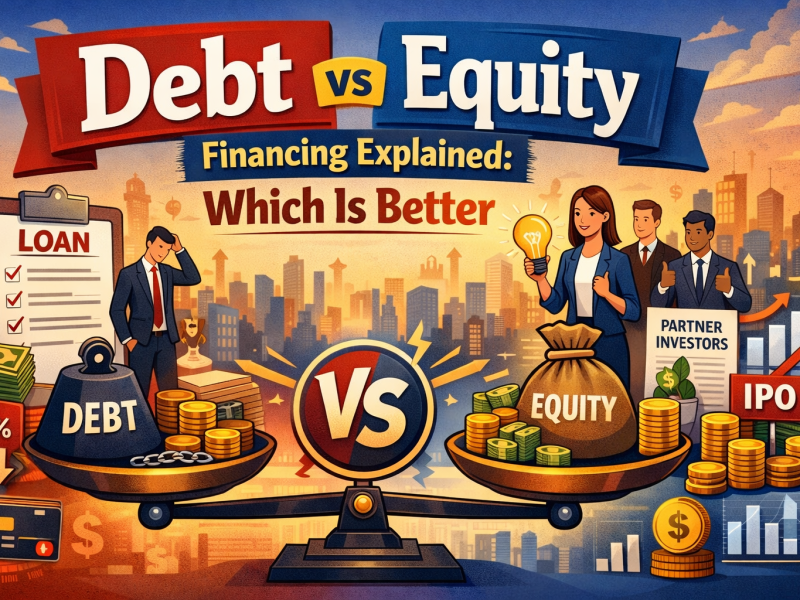Financial modeling involves forecasting the financial performance of a company by taking into consideration important factors like demand, supply, operational cost, pricing, customer behaviour, previous revenue, and so on.
The process includes creating a summary of an organisation’s earnings and expenditures in a spreadsheet. The impact is then calculated and assessed to determine the organisation’s financial health and make future decisions.
The best financial modeling course equips learners with the ability to assess a company’s previous performance, risk assumptions, and growth to make an accurate estimation of its valuation. It also aims to bridge the gap between theoretical understanding and practical application of financial aspects. The curriculum is designed to offer holistic knowledge to the learners, enabling them to deliver optimum financial solutions.
Let’s gain insight into the different aspects of a financial modeling course and how it can help in one’s career growth.
Financial modeling course curriculum
Financial models are represented as spreadsheets, so one should have a good command of Excel. The best financial modeling course curriculum is designed so students learn from scratch, starting from the basics of Excel and PowerPoint.
Once students have mastered the basic to advanced levels of Excel and PowerPoint, they are introduced to the fundamental concepts of finance, which lays the foundation for their understanding of financial aspects.
The later modules of the financial modeling course introduce the following concepts:
- Feasibility Study or Business Modeling
- Comparable Company Analysis
- Precedent Transaction Analysis
- Discounted Cashflow Valuation
- Merger Model and Leveraged Buyout.
Students also learn how to use the tools and software experts use to create various financial models and perform calculations.
An added advantage of signing up for the best financial modeling course is that in addition to imparting the right knowledge and skills about financial modeling, it also prepares aspirants for the job market by guiding them through the process of writing a resume and appearing for interviews.
Who can pursue the financial modeling course?
Freshers and professionals from different backgrounds can opt for a financial modeling course.
The list below shows who can enrol in the course:
- Undergraduates who want to understand the finer concepts of finance.
- CA final-year students who are looking forward to a career in finance but do not want to restrict themselves to taxation, accounting, or auditing.
- Candidates with an MBA in Finance.
- Engineers or anyone who wishes to establish a career in corporate finance, investment banking, equity research, and related domains.
If you fall into any of the categories mentioned above, the best financial modeling course can bring immense benefits.
After completing the course, you will be able to understand financial concepts and their impact on an organisation’s financial health, conduct risk assessments confidently, and develop plans that can improve an organisation’s financial performance.
What can you expect from the financial modeling course?
Before signing up for a course, you need to set an expectation for better clarity. Here are a few things you can expect from a financial modeling course:
- Learn from leading industry experts
The topics covered in a financial modeling course curriculum are extensive. However, having trainers who are ex-investment bankers or ex-consultants of reputed companies offers learners the opportunity to learn from the best.
These trainers impart their best knowledge to the learners and give them hands-on experience by bringing years of industry expertise to the classroom.
- Self-paced learning
The course is designed for working professionals who find it challenging to attend online classes scheduled for a specific time of day.
Alongside live interactive sessions, there are recorded classes that learners can revisit. This makes it easy for them to refer to concepts while working on models and applying theoretical knowledge practically.
- Placement support
The best financial modeling course guides you through everything from preparing a resume to appearing in an interview. After completing the course, your chances of landing a placement are higher.
Career options after a financial modeling course
Given how complex today’s financial markets are, financial modeling is essential for effective strategic planning. After an individual completes a course in financial modeling, they can take up the following career roles:
| Role | Average Salary |
| Financial Analyst | INR 9.2 LPA
Source |
| Business Analyst | INR 9.6 LPA
Source |
| Investment Banking Associate | INR 14.7 LPA
Source |
| Equity Research Analyst | INR 10.3 LPA |
Final words
If you are looking forward to embarking on a successful career in finance, a course in financial modeling is sure to give you a head start. With the right skills, knowledge, and practice from a financial modeling course, you can make accurate, data-driven, and strategic decisions based on research.
Enrol in the best financial modeling course today, and pave the way for a promising career!
If your goal is to dive into the financial market, then you can join the Online Financial Modeling and Valuations Course or the Offline Financial Modeling and Valuations offered by The WallStreet School. Some course highlights are:
- Real-world case studies
- Industry expert-led training
- A robust curriculum curated by industry leaders
- Practical training-based learning
Enrol today with The WallStreet School!
You can contact us via email or call us at (+91-) for more information.
FAQs
- Can you learn financial modeling online?
One can learn financial modeling online by signing up for the best financial modeling course. The courses are designed considering the requirements of working professionals and remote learners.
- What can I do with a financial modeling degree?
A financial modeling degree can equip you with the right skills and prepare you for a career in financial planning, organisational risk management, investment banking, corporate finance, or related fields.
- How do I get better at financial modeling?
The only way to attain perfection in financial modeling is through practice. When you enrol in the best financial modeling course, you encounter many real-world cases and applications. You also learn to use the templates effectively to better understand the concepts.





